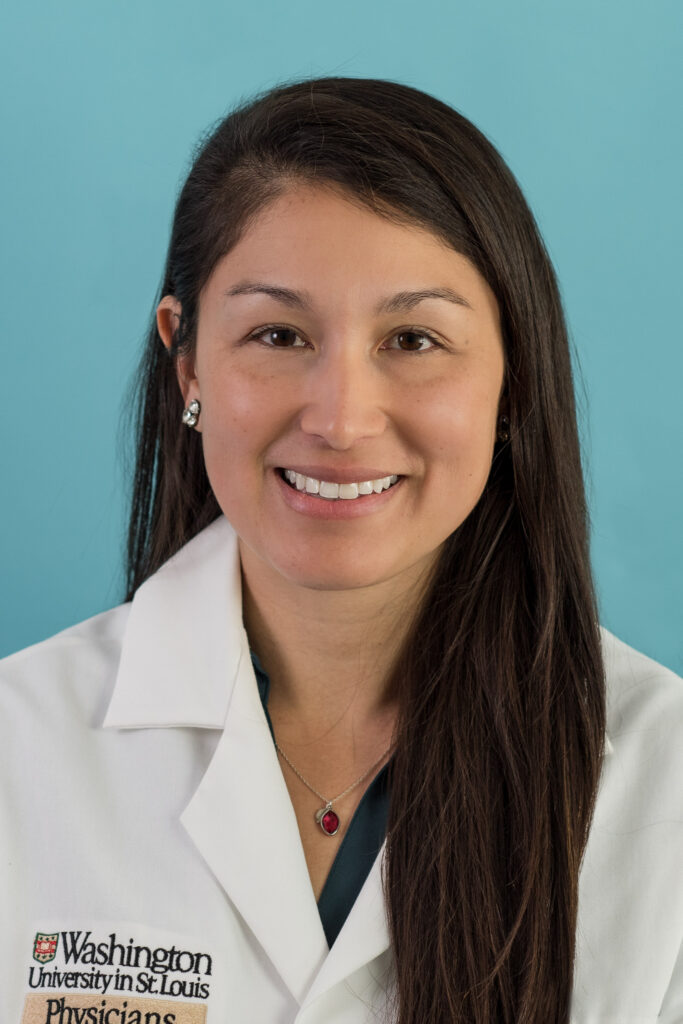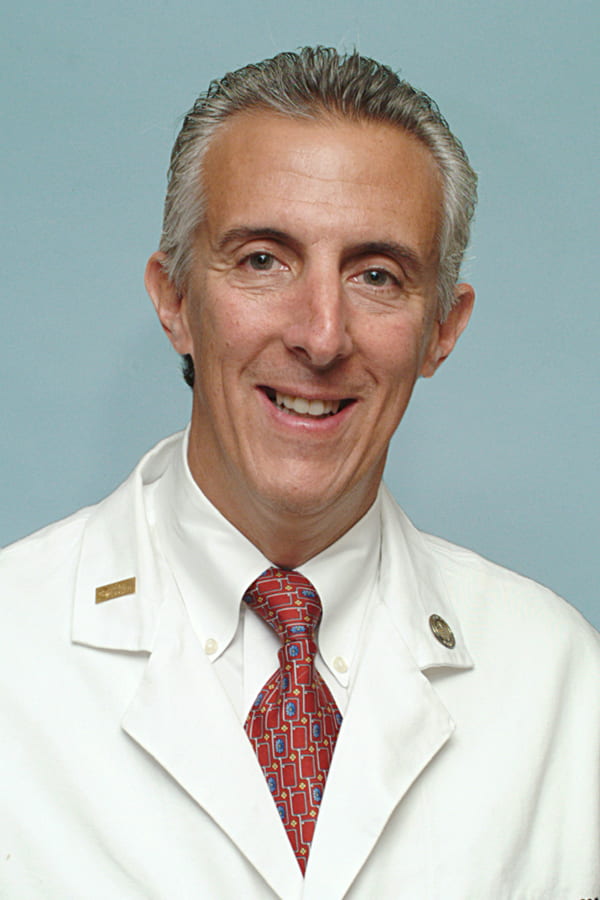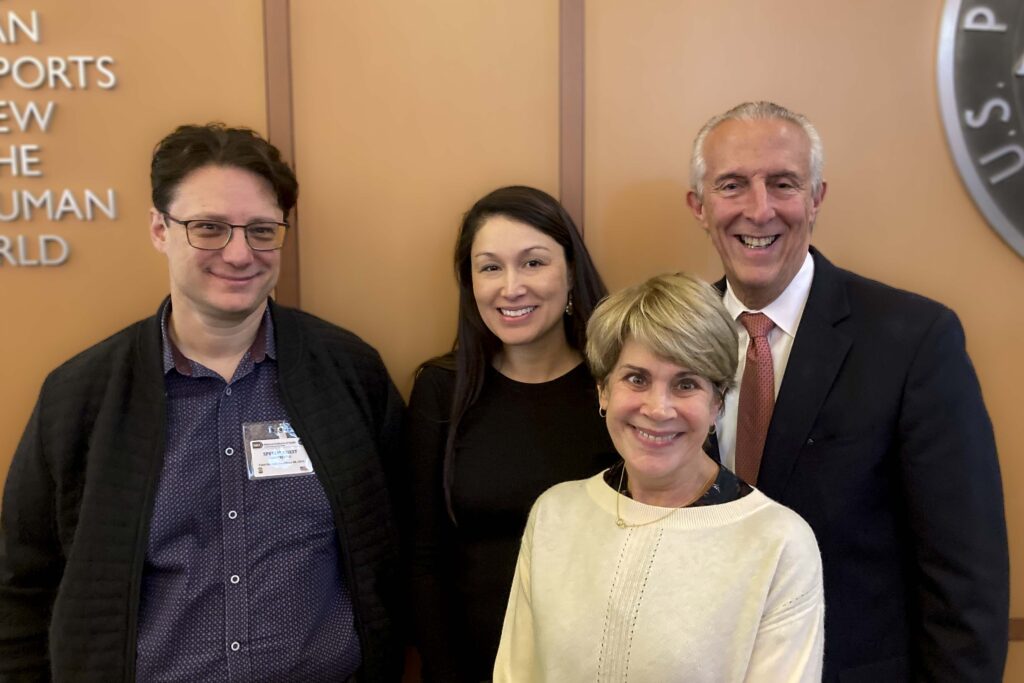Washington University rhinologist Lauren Roland, MD, MSCI, helped organize a two-day meeting of the work group on Allergic Fungal Rhinosinusitis (AFRS), hosted by the National Institutes of Health Clinic Center, Dec. 7-8.

The meeting featured 26 speakers and was sponsored by the Department of Health and Human Services, the American Academy of Otolaryngic Allergy, and the American Rhinologic Society. Other course directors included Joshua Levy, MD, MPH, MS (NIH), Amber Luong, MD, PhD (McGovern Medical School at UT Health Houston), and Cecelia Damask, DO (University of Central Florida College of Medicine).
Invited attendees included otolaryngologists, immunologists, pulmonologists, and infectious disease experts. Day 1 of the meeting featured clinical presentations. Day 2 highlighted lessons learned from research on AFRS and related fields.
In addition to Roland, WashU was represented by otolaryngologist Jay Piccirillo, MD, who spoke on the importance of prognostic stratification to identfy patient factors related to prognosis and response to treatment, and Andrej Spec, MD, MSCI, who shared information on the role of climate change in fungal diseases. Roland shared her expertise on invasive fungal sinusitis.

AFRS is a form of non-invasive fungal sinusitis with inflammation, polyps, and thickened mucus. Patients with AFRS may develop allergies, nasal polyps, and asthma. For many patients, the disease can affect their sense of smell and even lead to vision loss if left untreated.
“It is hard to treat allergic fungal rhinosinusitis, and polyps often recur,” says Roland. “The infecting fungi are found in the environment and cause an allergic reaction that results in thick fungal debris, sticky mucus, and blockage of the infected sinus.”
Goals of the work group are to:
- identify risk factors,
- improve diagnosis, including severity ratings,
- describe associated conditions,
- establish recommended treatment protocols, and
- better understand the molecular and cellular mechanisms underlying disease pathophysiology.
